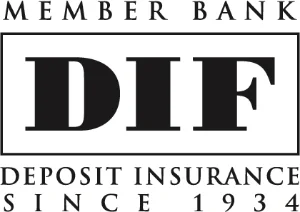
A current story making the rounds is that people with good credit scores are going to be “punished” for doing the right thing by being charged higher rates for mortgages.
As is often the case, there’s a lot more to this complicated financial situation than is getting into the soundbites.
First, it’s always right to do the right thing. Basically a higher credit score indicates that a person is paying their bills on time and they’re not overloaded with debt. Across the board, borrowers with higher credit scores get lower rates on mortgages than borrowers with lower credit scores.
But that’s not a “punishment” on borrowers with lower credit scores either. As a practical matter, if someone’s credit score is lower because they’re having trouble paying their current bills and/or they’re overloaded with debt, taking on even more debt is probably not going to be a good thing for them.
A higher interest rate might lead such a borrower to re-think borrowing more right now. Because of the way credit markets work, a higher interest rate also compensates a lender who’s taking a greater chance on a borrower with a lower credit score. That’s risk management.
Most people will agree that being able to pay bills on time and not being overloaded with debt is a positive. It’s better for an individual’s personal finances and for their peace of mind. That’s actually what makes it the right thing to work towards getting and maintaining a higher credit score.
What’s in the news right now is that the Federal Housing Finance Agency (FHFA) recently updated the complex “loan-level price adjustments” used by GSEs/government-sponsored enterprises Fannie Mae and Freddie Mac. You can read a lot of opinions about what those changes mean but the bottom line is that borrowers with slightly-dinged credit scores are still paying higher rates but somewhat less high. (A borrower with a seriously low credit score usually can’t qualify for a Fannie Mae/Freddie Mac mortgage program anyway.)
The Federal Housing Finance Agency is a government agency whose mission has always been (as they say on their web site) to ensure that Fannie Mae and Freddie Mac fulfill their purpose of serving as reliable sources for funding for housing and community development.
Lenders being able to sell loans to Fannie Mae and Freddie Mac has widened the market tremendously. Lenders can write many more loans than they could have or would have otherwise. So more mortgages are approved, more houses are purchased, more communities grow and thrive.
It is very difficult to pin down exactly how the current FHFA regulations will affect any individual borrower. For many, it might not have any impact at all. If you have questions or concerns, talk to your lender.
When it comes to your own personal cost of housing, shop carefully for both a property with good potential future value and for a mortgage. Get the best rate you can today. Then look for opportunities to refinance to lower your rate and – if possible – use windfalls to pay down your mortgage more quickly. That will never make the trending soundbites but it’s something in your control that can actually make a significant difference for you over time.
From the “Smart About Money” Canton Citizen column published June 15 2023.
Nick Maffeo is the President & CEO of Canton Co-operative Bank – right next to the Post Office – in Canton.
Have a question? Email to info@cantoncoopbank.com.


